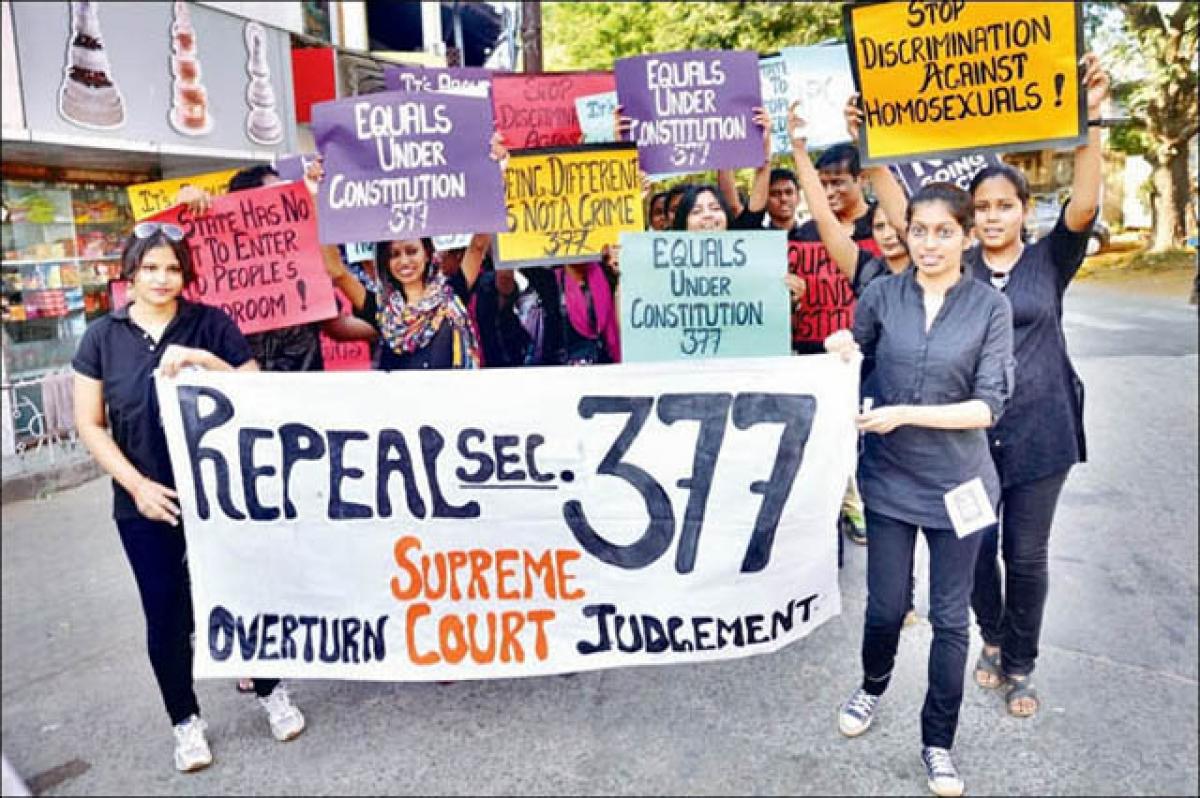What is Section 377?

What is Section 377. The US Supreme Court in a historic verdict last week legalised same-sex marriages across the country. There was immediately an overwhelmingly positive reception to the ruling on social media in India.
The US Supreme Court in a historic verdict last week legalised same-sex marriages across the country. There was immediately an overwhelmingly positive reception to the ruling on social media in India. However, Union Law Minister Sadananda Gowda on Tuesday rejected reports of reconsideration on Section 377, saying that the government had no plan to scrap the law that criminalises homosexuality.
.jpg)
Section 377, Indian Penal Code, 1860, was enacted by the British colonial regime to criminalise ‘carnal intercourse against the order of nature’. It was rooted in the Judeo-Christian religious morality that abhorred non-procreative sex. The Section reads as: “Whoever voluntarily has carnal intercourse against the order of nature with any man, woman or animal, shall be punished with imprisonment for life, or with imprisonment of either description for a term which may extend to ten years, and shall also be liable to fine.”
Lacking precise definition, Section 377 became subject to varied judicial interpretation over the years. Initially covering only anal sex, it later included oral sex and still later, read to cover penile penetration of other artificial orifices like between the thighs or folded palms.
The law made consent and age of the person irrelevant by imposing a blanket prohibition on all penile-non-vaginal sexual acts under the vague rubric of ‘unnatural offences’ Though ostensibly applicable to heterosexuals and homosexuals, Section 377 acted as a complete prohibition on the penetrative sexual acts engaged in by homosexual men, thereby criminalising their sexual expression and identity.
Besides, the society too identified the proscribed acts with the homosexual men, and the criminalisation had a severe impact on their dignity and self-worth. In a landmark judgment, the Delhi High Court in July 2009 struck down the provision of Section 377 of the Indian Penal Code which criminalised consensual sexual acts of adults in private, holding that it violated the fundamental right of life and liberty and the right to equality as guaranteed in the Constitution.
However, various groups, mostly faith-based, approached and fought legal cases in the Supreme Court. The SC in 2013 set aside the Delhi High Court judgement decriminalising gay sex and threw the ball into Parliament's court for amending the law.














